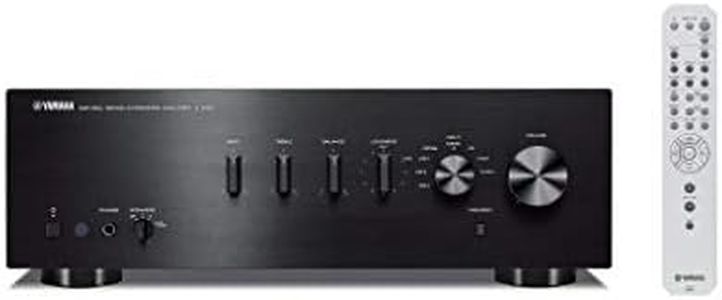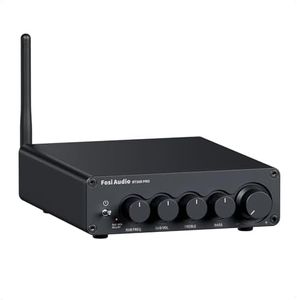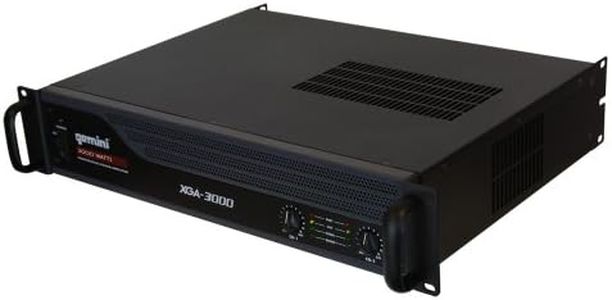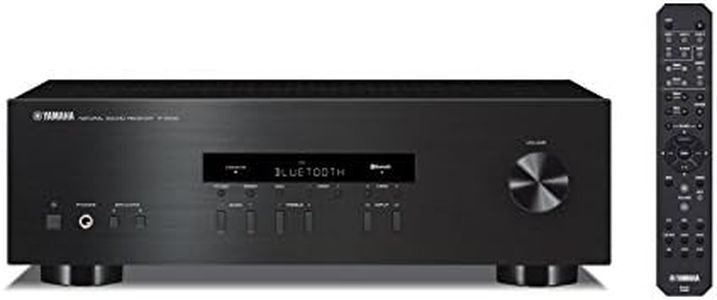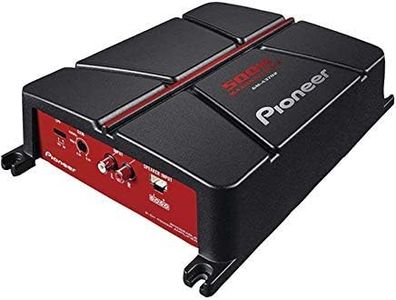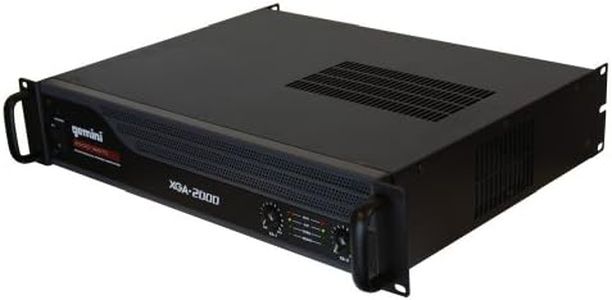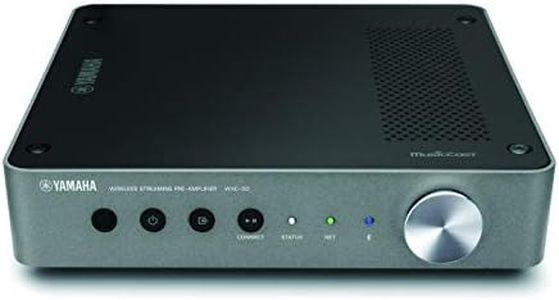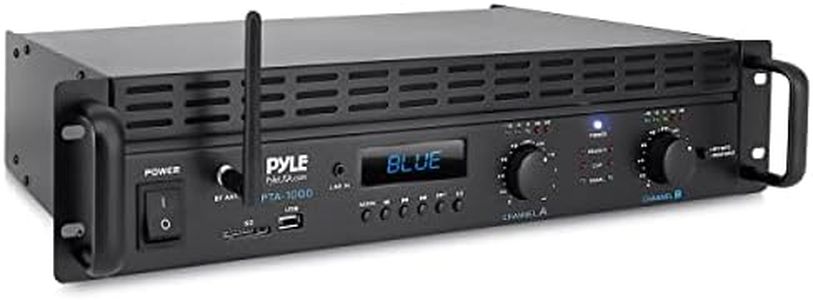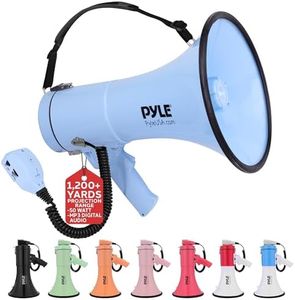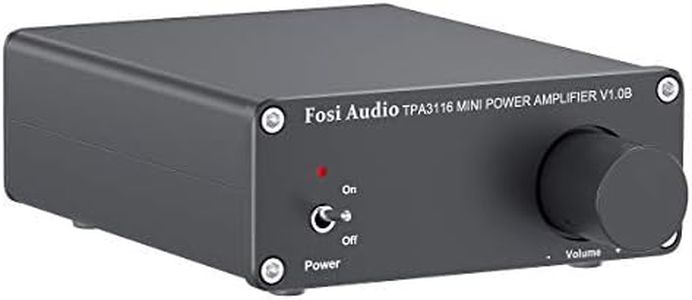We Use CookiesWe use cookies to enhance the security, performance,
functionality and for analytical and promotional activities. By continuing to browse this site you
are agreeing to our privacy policy
10 Best Dj Amplifiers
From leading brands and best sellers available on the web.By clicking on a link to a third party's website, log data is shared with that third party.
Buying Guide for the Best Dj Amplifiers
When picking a DJ amplifier, it's essential to think about how and where you'll be using it. Amplifiers take the audio signal from your DJ mixer or controller and make it powerful enough to drive your speakers, filling your venue with sound. To get the most out of your music, you'll want an amplifier that matches your needs in terms of power, sound quality, and connectivity. Think about your typical venues—are you playing at small gatherings or larger events? That should shape your choices. Below are important amplifier specifications and what they mean for your DJ setup.Power Output (Watts)Power output tells you how much energy the amplifier can send to your speakers, usually measured in watts per channel. More watts generally mean the ability to play louder without distortion. For bedroom setups or small parties, lower power (like under 200 watts per channel) will work fine. Medium venues might need 200-500 watts per channel, while large venues or clubs can require 500 watts or more per channel. Choose the power based on your typical event size—too little might make your system sound quiet or distorted, while too much can damage your speakers if you're not careful.
Number of ChannelsChannels refer to how many speakers you can connect and drive separately. A two-channel amp (stereo) is most common for simple left and right speaker setups. If you’re planning larger setups with more complex speaker arrangements, look for four or more channels. For most mobile DJs or club DJs, two channels is enough, unless you're running extra monitors or subs.
Impedance CompatibilityImpedance, measured in ohms, shows how much resistance your speakers provide to the current from the amp. It’s important to match the amplifier’s recommended impedance to your speakers—common values are 4 ohms and 8 ohms. Running a lower impedance than the amp can handle may overheat it. Always check your speakers' rating and select an amp that matches or has a wide range so you can connect different types of speakers safely.
Inputs and OutputsInput and output options determine what you can connect to your amplifier. Look for standard connections like XLR, RCA, and 1/4" jacks to ensure compatibility with your DJ gear and speakers. More input/output variety is helpful if you use different types of equipment or plan to expand your setup later. Pick an amp with the connections you need for what you currently use, and consider a few extras for flexibility.
Cooling and Protection FeaturesAmps generate heat when working hard, so cooling systems like fans or heat sinks are important for reliability. Protection features safeguard against problems like overheating, short circuits, or overloading. If you plan to play long sets or use the amp at high volumes, go for models with robust cooling and multiple protection mechanisms to avoid equipment failures.
Form Factor and WeightThis refers to the size and portability of the amplifier. Lighter and smaller amps are easier to transport if you’re a mobile DJ, while heavier, rack-mounted amps might suit permanent club setups better. Think about how often you move your gear—choose a compact, lightweight model for frequent transportation, or don’t worry as much about size for stationary setups.
Signal-to-Noise Ratio (SNR)The SNR tells you how much background noise the amplifier adds to your signal. A higher SNR means cleaner sound with less unwanted hiss or hum. Values above 90 dB are excellent for most DJ purposes. If audio quality is critical for your gigs or recordings, check this number—otherwise, it’s less important for casual use.
